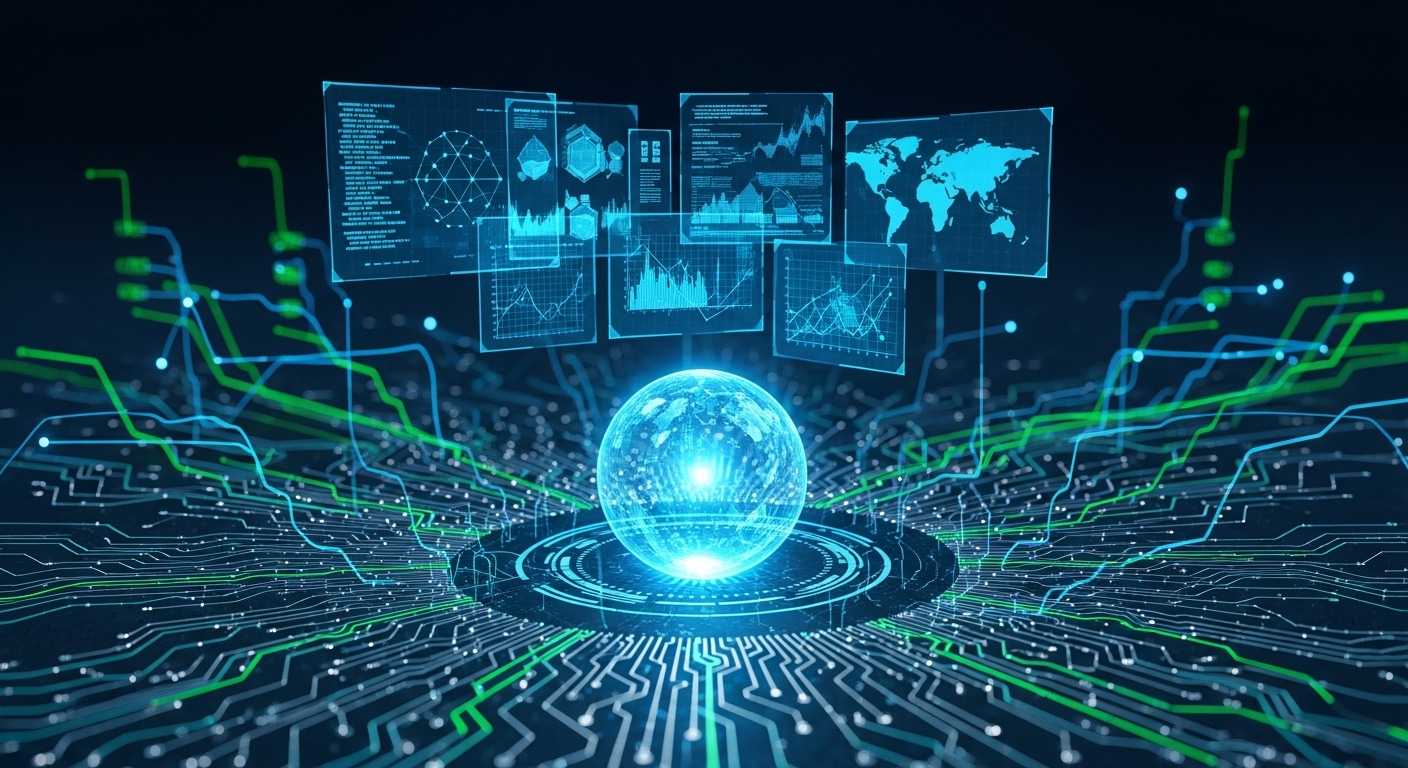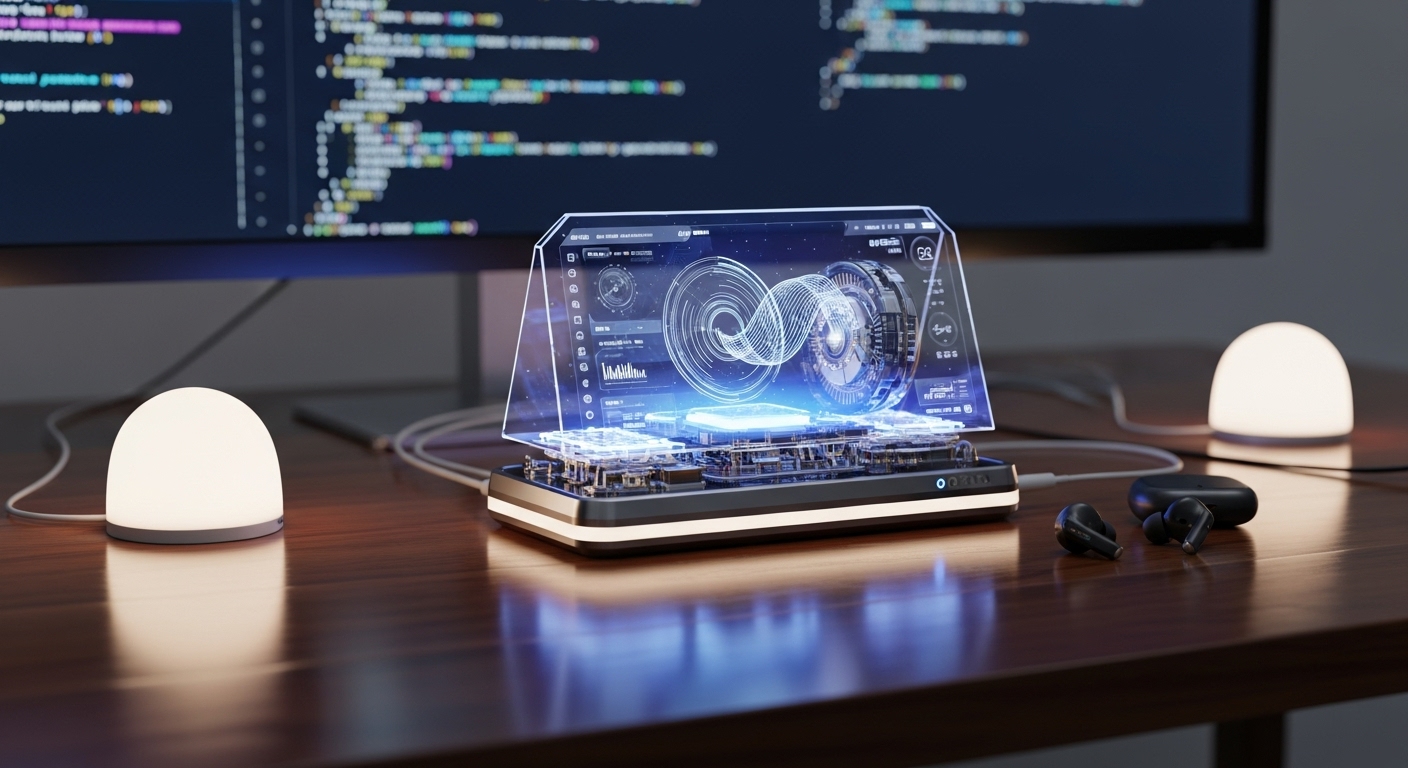Introduction: Embracing the Tech Revolution
Technology has evolved at an unprecedented pace over the past few decades, reshaping the way we live, work, and connect with one another. What was once the realm of science fiction has now become an integral part of our daily routines. From smart devices to artificial intelligence, the future of technology promises even more exciting possibilities. But as we look ahead, it’s crucial to explore how these advancements will impact not just industries, but the very fabric of our society.
The Rise of Artificial Intelligence: Changing the Game
Artificial Intelligence (AI) has made its way from research labs into everyday applications. In 2025, we’re seeing AI revolutionizing sectors like healthcare, education, and customer service. Virtual assistants are becoming more intuitive, predictive, and useful in streamlining our lives. AI-powered diagnostic tools are improving the accuracy and speed of medical care, while personalized learning platforms are reshaping the way students engage with their education.
As AI continues to develop, its potential is almost limitless. It will not only automate mundane tasks but also push the boundaries of human creativity and innovation. However, with this power comes the need for ethical considerations. The responsibility to ensure that AI is used for the collective good will be one of the most pressing issues for future generations.
The Internet of Things (IoT): Connecting Our World
The Internet of Things (IoT) is another key technological development that is transforming how we interact with our environment. The IoT involves connecting everyday objects to the internet, enabling them to collect, share, and analyze data. From smart homes to wearable devices, IoT is making life more convenient, efficient, and interconnected.
Imagine a home where your refrigerator automatically orders groceries when you’re running low, or a city that adjusts traffic signals in real-time to reduce congestion. These smart systems, powered by IoT, promise to make our cities smarter and more sustainable. However, the increased data flow also raises privacy concerns, making it essential to have robust security measures in place to protect our personal information.
Blockchain and the Future of Digital Trust
Blockchain technology, most commonly associated with cryptocurrency, is much more than just a digital currency. It offers a decentralized, transparent, and secure way to store and transfer information. Its potential goes far beyond financial transactions and is poised to disrupt industries ranging from supply chain management to healthcare.
In a world where digital trust is becoming increasingly valuable, blockchain offers a way to ensure transparency and security in virtually every transaction. Whether it’s verifying the authenticity of a product or ensuring secure voting systems, blockchain could be the key to rebuilding trust in digital platforms.
Augmented Reality (AR) and Virtual Reality (VR): The Future of Immersive Experiences
Augmented Reality (AR) and Virtual Reality (VR) are no longer just buzzwords in the tech industry. They are beginning to redefine how we experience the world. AR overlays digital content on the real world, while VR immerses users entirely in a computer-generated environment. Both technologies are finding applications in entertainment, education, healthcare, and even retail.
In gaming and entertainment, VR creates completely immersive experiences, allowing players to step into new worlds. In healthcare, AR is helping surgeons plan and practice procedures with enhanced precision, while VR is used for therapy and training. As these technologies mature, we can expect even more innovative uses that blur the lines between the physical and digital realms.
The Growing Role of 5G Technology
The rollout of 5G networks is set to revolutionize communication and connectivity. With faster speeds, lower latency, and the ability to connect more devices simultaneously, 5G will be the backbone for the next wave of technological advancements. Whether it’s autonomous vehicles, smart cities, or advanced IoT systems, 5G will play a critical role in powering these innovations.
For businesses, 5G means faster data transfer, more reliable connections, and the potential for new business models. For consumers, it will unlock new possibilities in entertainment, gaming, and communication. However, the deployment of 5G also raises questions about security and the impact on the environment, as the infrastructure needed to support it is vast and complex.
Cybersecurity: The Unseen Battlefield of the Digital Age
As technology becomes more integrated into our lives, the need for robust cybersecurity measures has never been more critical. With data breaches and cyberattacks on the rise, ensuring the safety of personal, corporate, and government information is paramount.
The growing sophistication of cyber threats means that traditional security measures are no longer sufficient. As we adopt new technologies like AI, IoT, and 5G, we must also invest in innovative cybersecurity solutions to protect against emerging threats. The next frontier in cybersecurity will involve AI-driven defense systems capable of detecting and neutralizing threats in real-time.
Conclusion: A Future Shaped by Innovation
The future of technology is bright, but it’s also filled with challenges. As we continue to embrace digital innovation, we must do so responsibly, ensuring that these advancements improve the quality of life for everyone. Whether it’s through AI, IoT, blockchain, or AR/VR, the technologies of tomorrow will reshape how we interact with the world around us.
In the end, technology is not just about gadgets and gizmos; it’s about the people who create, use, and are affected by these tools. The future will be defined by our ability to harness the power of technology to solve the world’s most pressing problems, while also ensuring that the digital world remains a place of trust, security, and opportunity for all.




